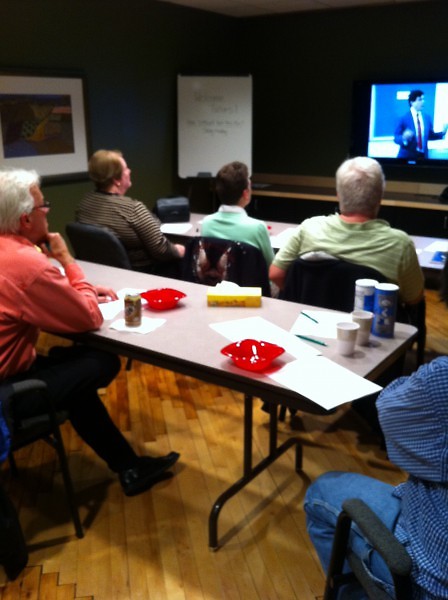There are many reasons why a person may have dropped out of school at a young age or have a low reading level as an adult. Learning disabilities is a common factor in adults with low literacy levels. 50 – 80% of students in adult basic education and literacy programs with low reading skills (below 5th – 7th grade level) may have either a suspected or diagnosed learning disability. (Bridges to Practice - http://www.floridatechnet.org/bridges/factsandstats.pdf ).
The Literacy Center of West Michigan hosted a workshop on learning disabilities for its current volunteer tutors. The tutors watched How Difficult Can This Be? by Richard Lavoie and discussed how to identify and address learning disabilities. The adult learners at the Literacy Center come from many different walks of life, so it is important that the volunteer tutors are equipped to address any barriers to the adult learners success.
The Different Types of Learning Disabilities:
Dyslexia:
a distinct learning disability – a specific language-based disorder of constitutional origin characterized by difficulties in single word decoding, reflecting insufficient phonological processing. Single word decoding difficulties are often unexpected in relation to age and other cognitive and academic abilities, not the result of developmental disability or sensory impairment. Dyslexia is manifested by variable difficulty with different forms of language including problems in acquiring reading, writing, and spelling. (International Dyslexia Association)
Dysgraphia:
a neurological disorder that is characterized by writing disabilities and difficulty with the mechanics of writing. It is a form of dyspraxia or motor clumsiness. The cause of the disorder is unknown (Bridges to Practice- http://www.floridatechnet.org/bridges/factsandstats.pdf ).
Dyscalculia:
profound difficulties in learning concepts in math, despite instruction, good intelligence, and sound sensory functioning. In some instances, individuals with LD have average or above-average math skills. For others, math is the primary area of disability or an area of disability in addition to other problems, such as a reading disability. These difficulties may not be apparent early in a child's development, but become noticeable by the time math processes become more complex, around 5th or 6th grade. Dyscalculia can have a major impact in many aspects of an adult's life, including managing money. It results from difficulties with complex, spatial reasoning (Bridges to Practice- http://www.floridatechnet.org/bridges/factsandstats.pdf ) .
The Rapidian, a program of the 501(c)3 nonprofit Community Media Center, relies on the community’s support to help cover the cost of training reporters and publishing content.
We need your help.
If each of our readers and content creators who values this community platform help support its creation and maintenance, The Rapidian can continue to educate and facilitate a conversation around issues for years to come.
Please support The Rapidian and make a contribution today.

